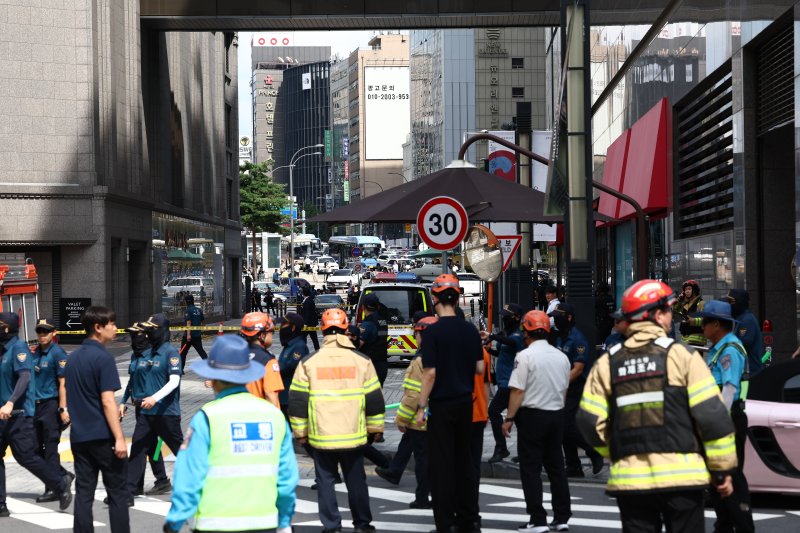Prank-Like 'Terror Threats'...“Even First-Time Offenders Should Face Harsher Punishment”
- Input
- 2025-11-10 16:16:56
- Updated
- 2025-11-10 16:16:56

[Financial News] With a surge in online threats to bomb department stores and other public facilities, calls are mounting for stricter punishment for those posting false terror threats. Experts argue that penalties for first-time offenders should be strengthened and tailored responses developed to address the unique nature of these crimes.
According to Police and other authorities on the 10th, a post claiming explosives had been planted at The Hyundai Seoul in Yeongdeungpo District appeared online the previous morning. Police and Firefighting teams searched the department store from 11:00 a.m. to 12:30 p.m. but found no explosives. On the afternoon of the 8th, another post claimed that five sticks of dynamite had been placed at Lotte Department Store in Seoul, prompting about 100 citizens to evacuate. Again, no explosives were found.
One reason cited for the spread of false terror threats is the perception of 'slap on the wrist' punishments. An analysis of 11 court rulings related to false bomb threats over the past five years revealed that it is extremely rare for first-time offenders to receive prison sentences.
Specifically, among the 11 defendants charged with obstruction of official duties by fraudulent means, the five who received prison sentences all had prior criminal records. Four of these had previously committed similar offenses. In some cases, offenders who reoffended during probation for previous convictions received sentences of up to one year and six months in prison.
Three first-time offenders were given suspended prison sentences, while another three received fines. Courts typically imposed fines when defendants admitted their wrongdoing, showed remorse, when some victims requested leniency, or when mental illness was deemed to have influenced the crime and treatment was considered necessary.
To eradicate false terror threats, the Public Intimidation Offense was enacted on March 18. However, many believe its effectiveness remains limited. The law was introduced in response to concerns that existing statutes made it difficult to punish online threats. Its key feature is that offenders can be punished even if no specific victim is targeted or if the crime is attempted but not completed. The penalties are harsher than those for general intimidation, allowing for up to five years in prison or fines of up to 20 million won.
Nevertheless, on July 23, the Seoul Southern District Court sentenced Mr. Kim (30), who was indicted for Public Intimidation Offense after threatening terror with a homemade bomb in public, to a fine of 6 million won. The court explained that the defendant had an intellectual disability and the case did not fit typical public intimidation scenarios, but criticism of the lenient punishment persisted.
As false terror threats continue, Police and Firefighting operations are disrupted and citizens face ongoing inconvenience. On August 5, an online post claiming explosives had been planted at the main branch of Shinsegae Department Store in Jung District, Seoul, led to the deployment of 242 police officers and the evacuation of over 4,000 customers and staff. No explosives were found. The incident forced the store to close for about three hours, resulting in estimated losses of 500 to 600 million won.
Experts stress the need for strict application of the Public Intimidation Offense in repeated cases and for enhancing the effectiveness of penalties. Bae Sang-hoon, a professor of police administration at Woosuk University (WU), advised, “It is time to consider institutional frameworks such as security dispositions and mandatory education orders to impose real burdens on those who commit swatting crimes—offenses that instill fear in others and waste police resources.”
jyseo@fnnews.com Seo Ji-yoon Reporter